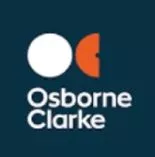The deadline to sign up is imminent, with exclusions unlikely to apply for trusts set up by Limited Partnership Agreements
The deadline for registration of many non-taxable UK trusts with HM Revenue & Customs is round the corner. Trusts with no tax liabilities are required to register with the Trust Registration Service by the later of 1 September 2022 or 90 days from the start of the trust, unless they fall within an exclusion.
Fund managers should urgently review their structures and vehicles to identify any express trust arrangements, particularly assets held on trust by general partners or nominees, and work to ensure these are registered as soon as possible.
Which trusts?
The rules, which are aimed at tackling money laundering, apply to all non-taxable express UK trusts that were in existence on or after 6 October 2020 (unless excluded). This includes trusts that were in existence on or after that date, but have since ceased.
Non-UK trusts must also register if they have acquired UK land after 6 October 2020, or have a UK trustee and have entered into a business relationship with a UK-regulated firm (such as lawyers, accountants or banks) after 6 October 2020.
Application to funds
The rules are likely to apply to certain express trusts set up in the context of investment funds.
As an English limited partnership does not have legal personality, it cannot own property in its own right. Where property is purchased using partnership money but held in one partner's name, there is a statutory presumption that the property belongs to the partnership as a whole, without the creation of an express trust (sections 20-21, Partnership Act 1890). A partner holding property on behalf of the partnership does not therefore automatically result in an express trust that may be registrable.
However, English law Limited Partnership Agreements may contain a general provision declaring that the general partner holds assets for the partnership on trust. HMRC guidance explicitly mentions this scenario as being registrable, and it is unlikely that any exclusion would cover this scenario.
Guidance from the Law Society indicates that there may be some limited cases where declarations of trust in respect of limited partnerships might fall within the exclusion for "transactional" or "commercial" trusts (under paragraph 14, Schedule 3A, Money Laundering Regulations 2017), but these will be limited to incidental trusts such as those arising on a partner's default rather than the main provisions.
This means that virtually all English limited partnerships will need to register with the Trust Registration Service.
The rules are also likely to apply to most bare trusts and nominees (that is, wherever assets are held in a name other than the beneficial owner's).
Non-compliance penalties
In practice, this extension to the rules is expected to result in widespread non-compliance.
Penalties for non-compliance could be severe, not least as late registration or failure to register could in theory lead to disciplinary action by the UK Financial Conduct Authority. However, HMRC guidance confirms that penalties will not be issued for a first failure or late registration unless the failure is due to "deliberate behaviour".
Instead, warning letters will be issued in recognition of the fact that registration is "a new and unfamiliar obligation for many trustees". Penalties for deliberate non-compliance might apply in cases such as continued failure to register a trust following repeated warnings.
A further practical obstacle is that a trustee of a registrable trust will not be able to engage regulated firms (such as lawyers, accountants, or banks) to advise in relation to the trust or trust assets without first providing a copy of the trust's register entry.
Osborne Clarke comment
Fund managers should review their structures on an expedited basis to identify any express trust arrangements and ensure these are registered with the HMRC Trust Registration Service as soon as possible.
The content of this article is intended to provide a general guide to the subject matter. Specialist advice should be sought about your specific circumstances.






